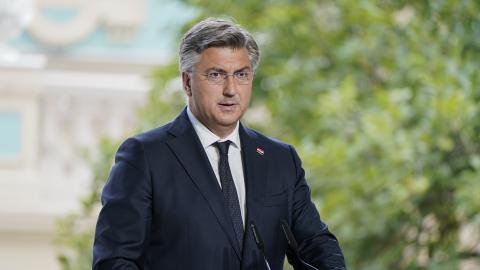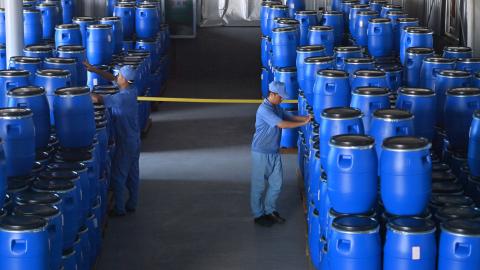These days, organizaitons like the IMF don't lightly diss China, a major power in the world of international finance. It's therefore remarkable that IMF economists are being as frank as this, basically saying that unless China's government changes policy rapidly, the country is headed for big trouble (via the WSJ):
China urgently needs to tackle its corporate-debt problem before it becomes a major drag on growth in the world’s No. 2 economy. Corporate debt has reached very high levels and continues to grow. In our recent paper, we recommend that the government act promptly to adopt a comprehensive program that would sacrifice some economic growth in the short term while rapidly returning the economy to a sustainable growth path. […]
So what is the solution? First, the government should make a high-level decision to stop financing weak companies, strengthen corporate governance, mitigate social costs and accept likely slower growth in the near term. It needs buy-in at every level—state-owned enterprises, local governments, and financial supervisors.
From time to time China's leaders have made it clear that they recognize the danger, but plans to undertake the necessary reforms always stall out once those reforms start making people unhappy.
In the old U.S. economy, the Chairman of the Federal Reserve was made independent of political pressure so he could play the role of the Grinch at the holiday party—the person who as William McChesney Martin Jr. famously said “order[s] the punch bowl removed just when the party was really warming up.”
Many admirers of China's apparently technocratic one party system admire the way that the freedom from political pressure allows sage leaders to take tough decisions. But China hasn't been working that way for some time now. A one party system doesn't eliminate politics or political pressure. Xi and his colleagues are as worried about public opinion as any poll-addicted American president, and they have continued to pump gas into the economy even as it dangerously overheats.
Oddly and paradoxically, it turns out that a political system with competing parties is better at setting up impartial, non-political institutions that can resist short term thinking by powerful pols. Nothing like an independent central bank could exist in today's China, anymore than there could be an independent judiciary or a free press.
Nobody knows precisely when this bubble will burst, but the signs continue to accumulate that the day of reckoning cannot be all that far off. When it comes it is likely to be a harsh one; China is a huge and complex place, and when its economic machine comes unglued, it will be very hard to put things together.
















